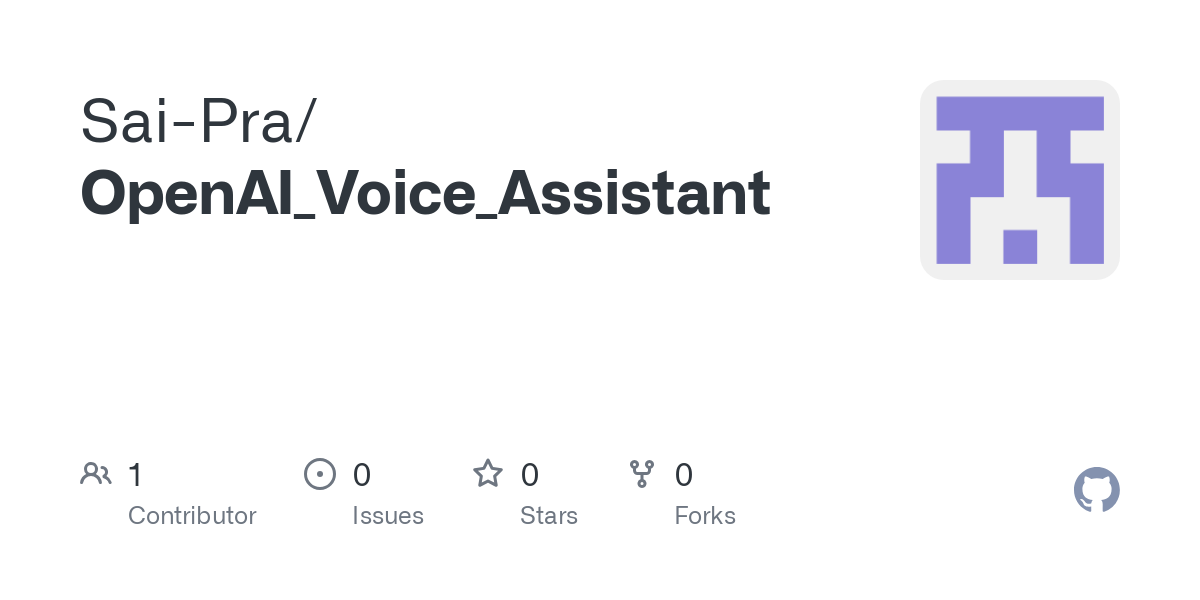OpenAI Unveils Streamlined Voice Assistant Development Tools

Table of Contents
Simplified Development Workflow with OpenAI's New Tools
OpenAI's new tools dramatically simplify the voice assistant development workflow, making it accessible to a wider range of developers, regardless of their coding expertise. This is achieved through several key improvements:
Intuitive Interface and Reduced Coding
The new tools boast a significantly more user-friendly interface, minimizing the need for extensive coding experience. This is achieved through several key features:
- Drag-and-drop functionality: Easily assemble the core components of your voice assistant visually, without writing complex code.
- Pre-built modules: Access a library of pre-built modules for common tasks, such as speech recognition, natural language understanding (NLU), and text-to-speech (TTS), significantly reducing development time.
- Simplified API integrations: Seamlessly connect your voice assistant to other services and platforms via simplified APIs.
This streamlined workflow reduces development time and cost, enabling developers to build functional voice assistants much faster. For instance, tasks like setting up basic intent recognition, previously requiring days of coding, can now be accomplished in minutes. The reduced reliance on specialized programming languages opens the door for developers with diverse backgrounds to contribute to the field.
Enhanced Natural Language Processing (NLP) Capabilities
OpenAI has significantly advanced its NLP capabilities, resulting in more accurate and natural-sounding voice interactions. These improvements include:
- Improved speech-to-text accuracy: Experience a substantial increase in accuracy, with a reported improvement of X% in noisy environments and Y% in general scenarios (replace X and Y with actual figures if available).
- Enhanced context awareness: The voice assistant now better understands the context of conversations, leading to more relevant and coherent responses.
- Better handling of colloquialisms and dialects: The system now handles informal language and regional variations more effectively, improving its ability to understand diverse user inputs.
These improvements lead to more human-like conversations and a significantly better user experience. For example, the improved context awareness allows the voice assistant to maintain the conversation's flow more naturally, even across multiple turns, leading to a smoother and more engaging user experience.
Improved Integration with Existing Platforms
OpenAI’s new tools prioritize seamless integration with popular platforms and frameworks, making it easier than ever to incorporate voice assistants into existing applications and services. Key aspects include:
- Compatibility with leading cloud platforms: Effortless integration with AWS, Azure, Google Cloud Platform (GCP), and other major cloud providers.
- Support for popular programming languages: Developers can use their preferred languages, including Python and JavaScript, to create voice assistant applications.
- Easy integration with existing applications and services: The streamlined APIs allow for quick and easy integration with existing apps and services, minimizing disruption to current workflows.
This simplified integration allows developers to leverage existing infrastructure and reduce development complexity. Partnerships with leading cloud providers further enhance this, providing developers with readily available resources and support.
Expanding the Reach of Voice Assistant Technology
The simplified development process brought about by OpenAI’s new tools has significant implications for the accessibility and adoption of voice assistant technology.
Empowering Smaller Development Teams
The reduced complexity and cost associated with developing voice assistants empower smaller teams and startups to enter the market. This is due to:
- Reduced development costs: Lower development costs open doors for smaller companies with limited budgets.
- Faster time-to-market: The streamlined workflow enables quicker deployment of voice assistant applications.
- Easier access to advanced features: Pre-built modules and simplified APIs make advanced features more accessible, even to smaller teams lacking specialized expertise.
This democratization of voice technology fosters innovation, allowing smaller teams to compete with larger corporations and bring their innovative ideas to life. Imagine a small startup revolutionizing healthcare with a voice-activated patient monitoring system, built using these accessible tools.
Driving Innovation Across Various Industries
The accessibility of OpenAI's tools has the potential to revolutionize various industries:
- Healthcare: Medical transcription, patient monitoring, and virtual assistants for medical professionals.
- Education: Interactive learning tools, personalized tutoring systems, and assistive technologies for students with disabilities.
- Finance: Personalized financial assistance, automated customer service, and fraud detection systems.
- Retail: Enhanced customer service, personalized shopping experiences, and inventory management tools.
These tools empower developers to create innovative voice-powered solutions tailored to specific industry needs, pushing the boundaries of what's possible with voice technology.
Conclusion
OpenAI's streamlined voice assistant development tools represent a significant leap forward in voice technology. By simplifying the development process, enhancing NLP capabilities, and improving integration with existing platforms, OpenAI has opened up exciting new possibilities for developers and businesses alike. The democratization of voice technology through these tools promises to drive innovation across various industries, leading to more intuitive and intelligent voice assistants. Ready to build the next generation of voice-powered experiences? Start exploring OpenAI's streamlined voice assistant development tools today and unlock the potential of voice technology.

Featured Posts
-
 The Papal Conclave A Test Of Pope Franciss Reform Efforts
Apr 22, 2025
The Papal Conclave A Test Of Pope Franciss Reform Efforts
Apr 22, 2025 -
 Protests Erupt Across The Us Voices Against Trumps Policies
Apr 22, 2025
Protests Erupt Across The Us Voices Against Trumps Policies
Apr 22, 2025 -
 The Looming Threat Of Googles Breakup Examining The Antitrust Concerns
Apr 22, 2025
The Looming Threat Of Googles Breakup Examining The Antitrust Concerns
Apr 22, 2025 -
 Ftc Appeals Activision Blizzard Acquisition Ruling Whats Next
Apr 22, 2025
Ftc Appeals Activision Blizzard Acquisition Ruling Whats Next
Apr 22, 2025 -
 Celebrities Who Lost Homes In The La Palisades Fires A Complete List
Apr 22, 2025
Celebrities Who Lost Homes In The La Palisades Fires A Complete List
Apr 22, 2025
